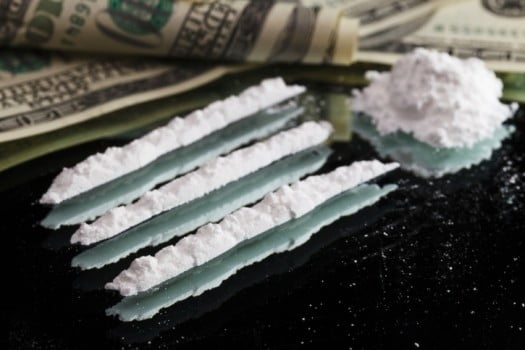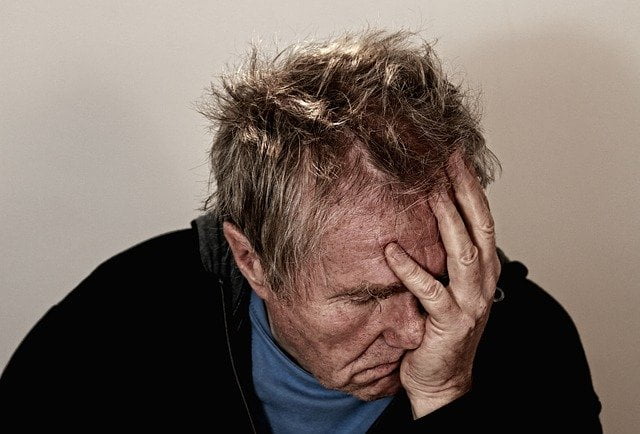- Home
- Addiction Detox
- Cocaine Detox
Cocaine Detox
Cocaine, also known by its street names of coke, Charlie, or blow, is a common recreational drug – one of the most popular in the UK.
In fact, 2.6% of adults in the UK aged between 16 and 59 reported using the drug in the reported period ending in March 2020.
This makes cocaine the second most common drug consumed in the UK after cannabis.
When consumed, cocaine acts as a powerful stimulant, causing changes in behaviour, as well as an increase in excitement, confidence and anxiety.
These strong effects make cocaine highly addictive, as individuals will continuously seek the drug in an attempt to achieve the same effects.
For this reason, addictions to cocaine are some of the most common disorders across different UK rehabilitation programmes.
What Is Detoxification?

During rehabilitation, there are generally three stages: detoxification, rehabilitation, and aftercare.
The process of detoxification comes first in order to remove the drug from the body, as well as any harmful build-up of toxins as a result of addiction.
Although this process may not be pleasant, a detox from cocaine carries far fewer risks than other drugs.
For example, both heroin and alcohol are physically addictive drugs, meaning that individuals are likely to experience far more serious risks to their physical health, including death in some cases.
Unlike heroin and alcohol, however, cocaine is not physically addictive, meaning that individuals going through a cocaine detox are less likely to risk these factors unless their addiction runs alongside an addiction to other substances.
Why Is Detoxification Necessary?

As mentioned above, detoxifying is the first step in the process of rehab, as it allows individuals to move away from their substance usage and focus on future areas of their rehabilitation journey.
Consider the following: if an individual goes through a detox in the early stages of rehab, then they will be far more likely to be able to focus on future rehabilitation, such as considering therapy or other treatments.
Additionally, removing the waste chemicals from the body will likely improve the individual’s quality of life in the long-term, as they are less likely to seek further consumption of cocaine, and will improve other areas of their lives such as their career or finances.
How Serious Will My Cocaine Detox Be?

With addiction, no two individuals will experience it the same.
This refers to all aspects of addiction, including triggers, cravings, impact on everyday lives and the risks during detoxification.
Someone with a longer history of cocaine usage (more than a few months) is likely to have more severe effects during detox than someone with a shorter history of cocaine usage (using once or twice across social events, for example).
This difference is due to the body’s dependence on the drug – both physical and psychological.
If an individual has used cocaine for a long time, then their body will be more accustomed to having the drug in their system, including a dependence on the chemicals that it produces.
When cocaine is then removed from the system, the body will struggle to naturally create the chemicals that cocaine will have been assisting in, meaning that individuals will likely feel this through strong withdrawal effects.
How Long Does A Cocaine Detox Take?

As previously stated, an addiction to cocaine (or any addiction in that matter) will not be experienced in the same way by any two individuals.
Because of this, predicting factors such as length or duration of a cocaine detox is uncertain.
Generally, individuals will meet with a medical professional prior to their detox to discuss the difficulties and consequences that these individuals may experience.
From this meeting, a more accurate estimate may be made based on the individual’s personal factors and experience.
However, in most cases, a cocaine detox takes between 7 and 10 days.
This is the time taken for individuals to progress through the different withdrawal symptoms experienced, though some may be more long-lasting than others.
Mild Withdrawal Symptoms From Cocaine

The range of effects of a cocaine detox can be vast, as each individual’s personal history and physical health will be factors contributing to this.
Some individuals, especially those with a shorter history of cocaine usage, are more likely to experience less serious withdrawal effects.
This is because their body may not be as dependent on cocaine as individuals with a long history.
No matter the individual’s personal history, however, on-hand support is always recommended, and no individual should progress through detoxification by themselves.
Below are some of the most common mild withdrawal symptoms from cocaine:
- Increased sweating
- Irritability
- Nausea
- Headaches
- Body aches
- Increased shaking
- Reduced cognitive functioning
This list is not complete, as everyone will experience withdrawal differently, but aims to highlight some of the most commonly reported effects by those who have been through the process.
Severe Withdrawal Symptoms From Cocaine

For those with a long history of cocaine addiction, the withdrawal symptoms can often be far more severe.
As mentioned above, this is due to the body’s dependence on cocaine to produce certain chemicals such as dopamine and serotonin, a lack of which can quickly lead to serious effects.
For those with a long history of cocaine use addiction, it is never recommended to go through detox alone, as it may be necessary to contact further support in emergencies.
Although cocaine is not physically addictive, the effects are no less unpleasant for those experiencing them.
Below is a list of some of the more serious effects experienced with cocaine withdrawals:
- Exhaustion
- Anxiety
- Depression
- Thoughts of suicide
- Full body tremors
- Aggression
- Intense cravings for cocaine
Again, this list is not extensive but aims to highlight the most common symptoms experienced by those going through a cocaine detox, most of which are caused by neurological changes in the brain.
The Importance Of Dual Diagnosis Treatments

Dual diagnosis is the term used to describe an addiction treatment programme which focused on both the physical and mental effects on the individual.
Often, addiction is a result of underlying mental health issues, meaning that any treatment programme prescribed to these individuals should make sure to include both elements during treatment.
All addiction treatments offered through Rehab Recovery follow this approach, as it is proven to be the most effective form of treatment, leading to a reduced risk of relapse as well as having a high success rate for long-term abstinence.
If an individual is seeking rehabilitation care alone, ensure that the rehab provider understands and follows this approach in order to gain the most out of the chosen addiction treatment programme and give them the best chance at a strong recovery.
How Is A Cocaine Detox Treated In Residential Rehabilitation?

Cocaine detoxes in residential centres are often different from those experienced elsewhere.
In general, this is due to the increased level of staff in these centres, with most of them being experts in addiction and detoxification or general medical professionals.
Although this level of care is available from other sources, it is generally guaranteed in residential centres.
Often, the centre will have a private detox clinic which can be specialised for detoxes from different substances.
During detoxes in these dedicated clinics, individuals will be supervised 24/7, meaning that they can gain access to any help they need for the duration of their withdrawal.
In some cases, this may refer to medical intervention to alleviate withdrawal symptoms, but in other cases it can simply mean having social support during the later stages.
What Types Of Treatments Might I Come Across During A Cocaine Detox?

Addiction treatment programmes are specialised for each individual, meaning that no individuals will be offered a ‘set menu’ of care.
Though there are no specific treatment programmes designed for cocaine addiction, there are some treatments that are known to be more effective than others and are therefore put into practice more often.
These types of treatments have been shown through countless studies (and through experience) to be the most effective forms of treatment specific to cocaine addictions.
As cocaine is known to have more psychological effects than physical ones, this is reflected in the variety of treatments and therapies in the following few paragraphs.
Rewards And Incentives
Though it may seem simple, implementing a rewards programme for those wishing to reduce their cocaine usage can be a great way to slowly support someone through cocaine withdrawal.
Often, individuals will discuss what may be suitable as a reward before this type of treatment begins and be supplied with it when they have proven a reduction in usage or complete abstinence from cocaine.
The reward or incentive can be many things, from vouchers to personal rewards, and this should always be thoroughly discussed in order to ensure its effectiveness as a reward for cocaine usage reduction.
This technique may not work with every individual, but when employed correctly the results are often extremely effective.
Cocaine is sometimes thought of as a ‘reward’ to the brain by those addicted, so finding an incentive that outweighs this is essential in determining its success.
Behavioural Therapies
These are often the types of therapy that individuals may expect from an addiction treatment programme.
These are based on the concept of exploring the individual’s cocaine addiction through one-to-one talking therapy.
Behavioural therapies are extremely effective in helping the individual to develop their own coping mechanisms to deal with the various effects that they may experience.
Behavioural therapies are common and include some well-known methods such as CBT (Cognitive Behavioural Therapy) and MI (Motivational Interviewing) – both of which are based on the approach of helping the individual realise and use their own internal resources to overcome their addiction and manage it throughout long-term recovery.

New Zealand Valium/Diazepam New Zealand Valium/Diazepam
Medications And Pharmacological Interventions
If necessary, it can be suitable for some individuals to undergo pharmacological interventions in order to combat some of the long-term effects of cocaine addiction.
Most commonly, these medical interventions include treating the psychological effects such as mental health disorders and insomnia.
For example, some individuals before, during, or after rehabilitation may begin to take antidepressants or other anxiety-reducing drugs.
These often help the individual focus more fully on their recovery as opposed to the negative psychological effects they may be experiencing.
Additionally, individuals may be prescribed drugs to combat insomnia, helping the individual to rest and recover in general, as well as allowing them to focus more on the future rehab treatments that they may undergo.
These types of drugs can often help the individual be more present and engaging with any current treatments.

Relapse Risk Prevention Planning
As part of most rehab programmes, individuals will undergo relapse prevention planning.
This is an essential part of rehab as it is focussed on helping the individual after they leave a dedicate rehab centre or treatment programme, allowing them to feel more independent and confident with their long-term recovery.
Often, this plan will include the individual’s triggers, cravings, history of addiction and previous relapses, as well as the contact numbers for their addiction supervisor or addiction support network.
During rehabilitation, individuals will be coached through creating a relapse prevention plan, ensuring that the plan is realistic, achievable and helpful in the event that it is needed.
Not every individual is guaranteed to relapse, but having a plan in place can serve as a reminder or as peace of mind for anyone who may need it.
Get Help For Cocaine Detox Today

To learn more about anything read in this article or to enquire about any further questions relating to rehabilitation, contact a member of the Rehab Recovery team on our addiction support hotline at 0800 088 66 86.
Cocaine detox and rehab don’t have to be scary: with the right support behind you, any addiction can be beaten.




